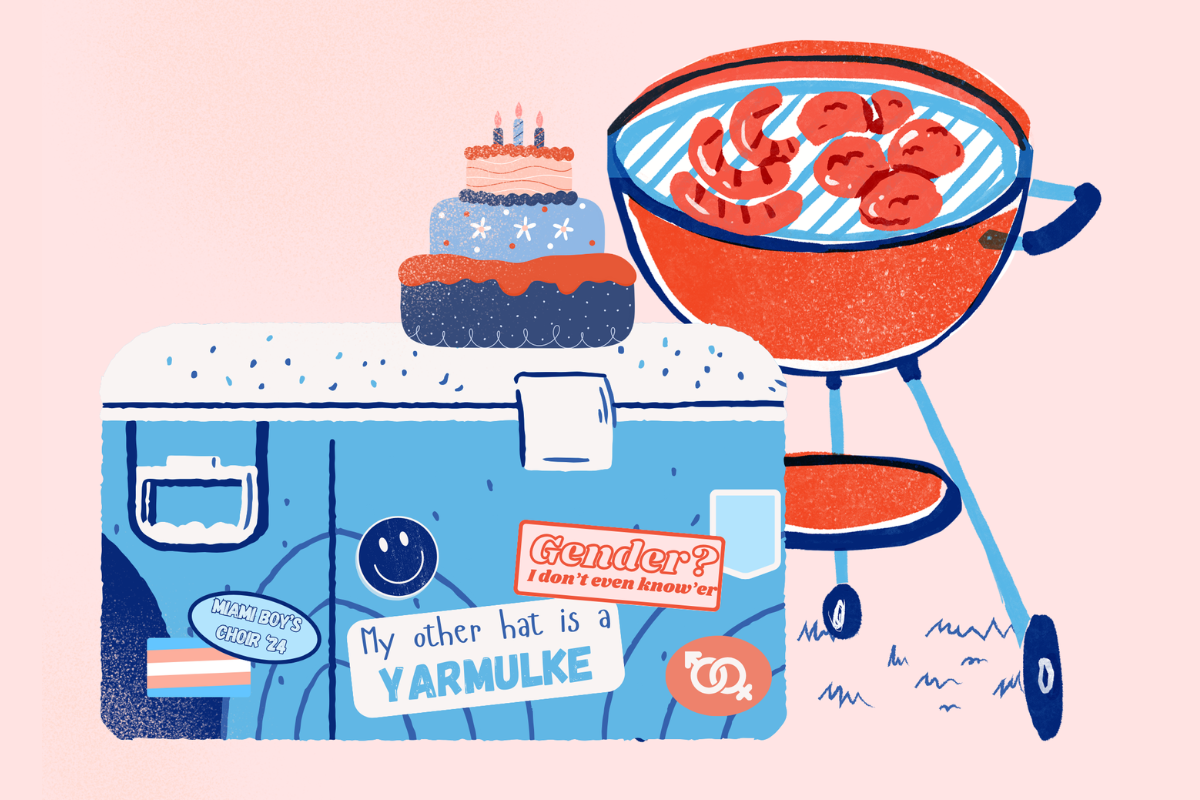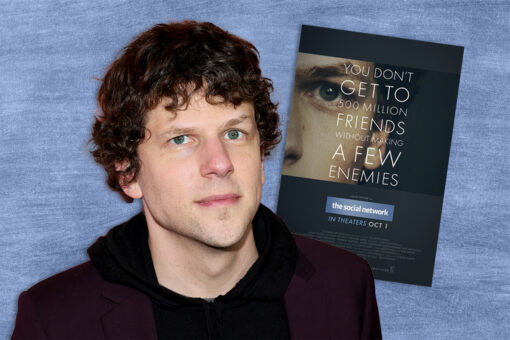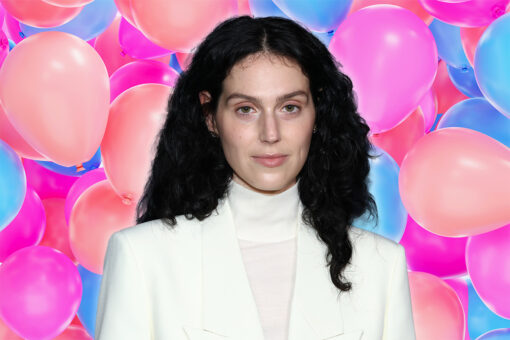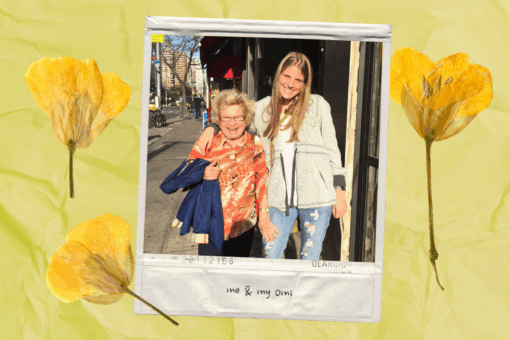As is often the case for young men mid-puberty, I’ve just gotten out of the shower. It’s the Thursday before my bar mitzvah and the usual emotions are present. I’m babyfaced and my cheek is gummy with blood where I nicked myself. I still haven’t mastered shaving, and I’m actively vibrating with nerves ‘cause I’m pretty sure my rudimentary Hebrew is going to fail me during my Torah portion. After toweling off, the last step is to clasp my silver Star of David around my neck. It looks too big against my narrow chest; then again, it’s secondhand. One of my friends from college gave it to me after wearing it for a play.
Oops. That’s my bad. I realize now I’ve misled you. This isn’t a decades-old memory I’m revisiting. Today, as I try desperately to flatten my damp hair against my scalp, is Tammuz 5, 5784. And I’m not 13. My bar mitzvah is scheduled to take place on my 23rd birthday. It feels like the premise of a Jewish coming-of-age film. But I don’t feel very Wes Anderson-y. Instead, I’m miserably aware of everything that makes this event weird.
Neither my mother (Floridian) nor my father (unencumbered by the concept of God) is particularly devout. I don’t know if they would have thrown me a bar mitzvah back in the day even if I weren’t transgender; I don’t bring it up when I visit them to borrow their cooler. Tempting as it is to blame my parents for having the ceremony so late, I don’t bother. I was a lonely kid, and my transition around age 14 didn’t exactly endear me to our neighbors. It’s only since I began my medical transition that I’ve come out of my shell enough to be a member of any community, let alone the Jewish faith.
It’s been five years since I started taking testosterone. I now have a gaggle of friends who love me enough to watch me stumble through a few chapters of the Torah if it means recovering my long-lost Jewish manhood. My Dungeons and Dragons campaign members, fraternity brothers and friends from high school R.S.V.P. early on to let me know they’ll be able to make it to what we call the Birth Mitzvah. Suddenly, the guest list for what I expect to be a simple camping trip at the lake is 20 people deep. The crowd makes me nervous but I try not to worry. The gang is happy to work together to make the weekend perfect, even offering to bring the essentials so the birthday boy doesn’t have to worry his pretty little head about a thing. This is wonderful for me, someone who takes pretty little head health very seriously.
Even as we set up camp and giggle over secretly-spiked Stanley cups in the golden Friday afternoon, an awful air of finality pervades. The Birth Mitzvah should signify the start of a sparkling new era, but in many ways, it represents more deaths than it does rebirths. In only two weeks, I’m due to leave my home behind and move across the country. I don’t want my Birth Mitzvah to also be shemira, or the final act of sitting watch over the corpse of my old life. Yet as the stress of the trip stacks upon me, it becomes harder and harder to remember that the weekend is supposed to be a celebration.
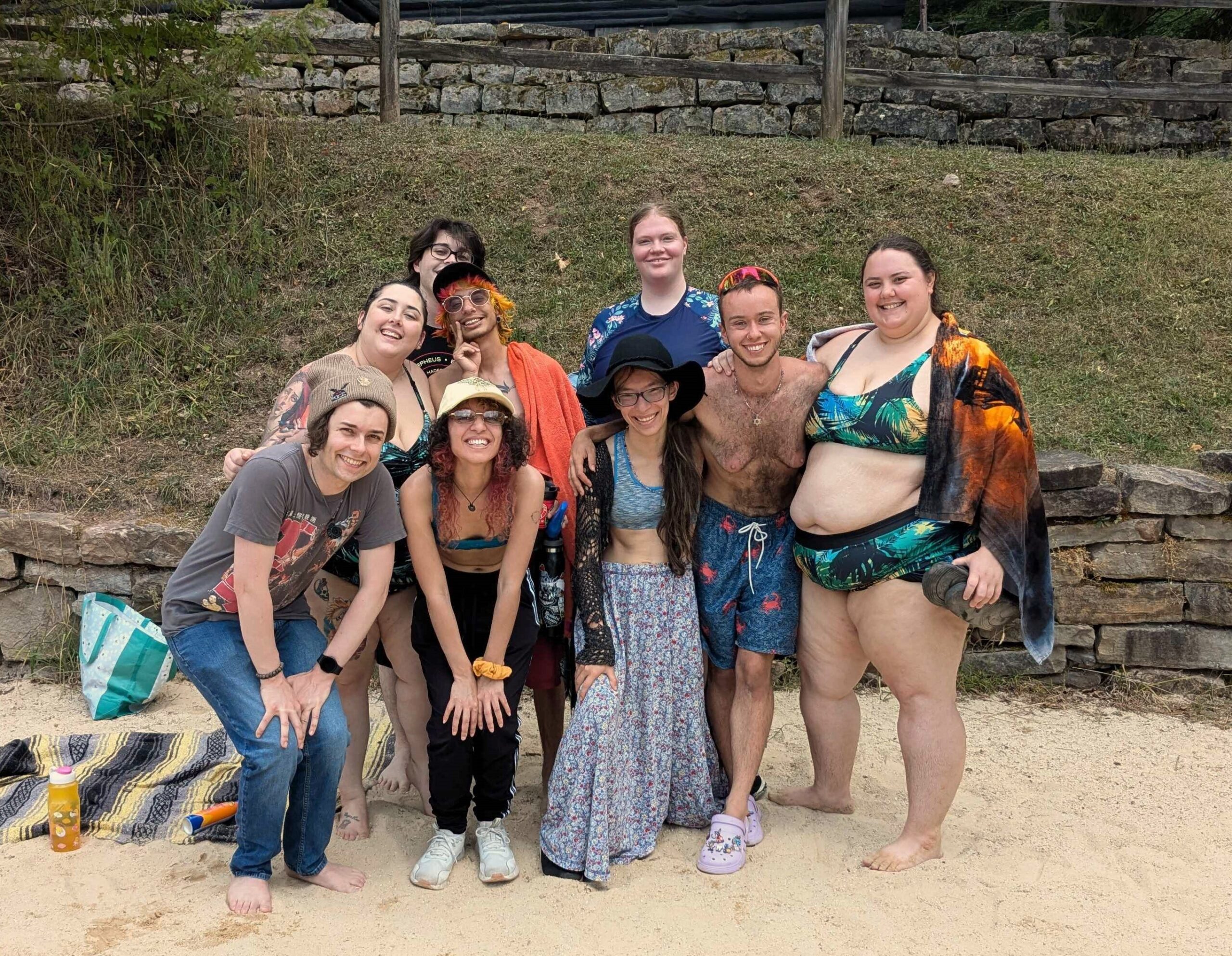
Friday’s festivities, plus a sleepless night spent battling a goliath raccoon for our food stash, do little to prepare me for the Saturday morning cake crisis. Some folks from our D&D group who are driving in from three states over are having car problems. Their safety is at risk, and if that weren’t bad enough, the cake is in jeopardy. The out-of-towners committed to picking up my birthday cake, so it’s now stranded on the shoulder of I-81 inside their hot car. The pretty little head has, at this point, become thoroughly worried.
My elite team of lesbians offers to hunt down the cake, and I let them steer me away from a complete and total breakdown in favor of studying my Torah portion. It doesn’t go well; I’m concerned I might single-handedly reverse centuries of linguistic development through sheer incompetence. Bamidbar (or Numbers) chapter 19 took place after the Jews escaped Egypt. In the desert, Moses and Aaron were asked to sacrifice and burn a red heifer. They used her ashes to purify water, and that water was used in taharah, or washing the recently deceased. This was an instrumental step in the process of grieving and healing the people of the Diaspora so desperately needed.
It strikes me suddenly that the point of my Birth Mitzvah isn’t to go through the motions of Jewishness. It’s to transform into a man who has the skills to address past injury. Growing up isolated by my gender identity fundamentally damaged me. I behaved miserably to myself and others for years without the vocabulary to ask for help or forgiveness, or even to express basic truths about myself to people who could have been my support system. Back then, there was no chance of me participating in Jewish culture because I was saddled with surviving cisgender culture.
This is the end of that era. I can properly grieve the experiences lost to trauma by stepping into an adulthood filled with faith, friendship and self actualization. My path to Jewish adulthood is my journey home, and I’m coming back with a bounty on the heads of the monsters under my childhood bed. Then I’ll turn my attention to the things that haunt me today. Change absolutely sucks. Seriously, I know — I went through puberty twice. I’m upset about the upheaval of the move and will absolutely mourn the things that I lose during that transition. But I can feel secure knowing my next chapter will be even better than the last one because it’ll be full of the people I love… myself included.
Miraculously, the damaged vehicle carrying my out-of-state friends rattles into the campsite lot at the same time as the cake retrieval team’s Subaru. My friends emerge, victorious, with cake. In a surprise twist, the cake is freakishly huge — we now have enough to share with everyone in the campground. So we do. Strangers from neighboring tents accept heaping plates of sticky marble sheet cake. I don’t know if they’re Jewish, and I doubt we’re all at the campground to celebrate Birth Mitzvahs. But the important thing is that we all chose to experience what could have been mere individual joy, as a group. For several minutes, our campsite is packed with folks laughing and sharing a nosh. I revel in the feeling of being surrounded by people.
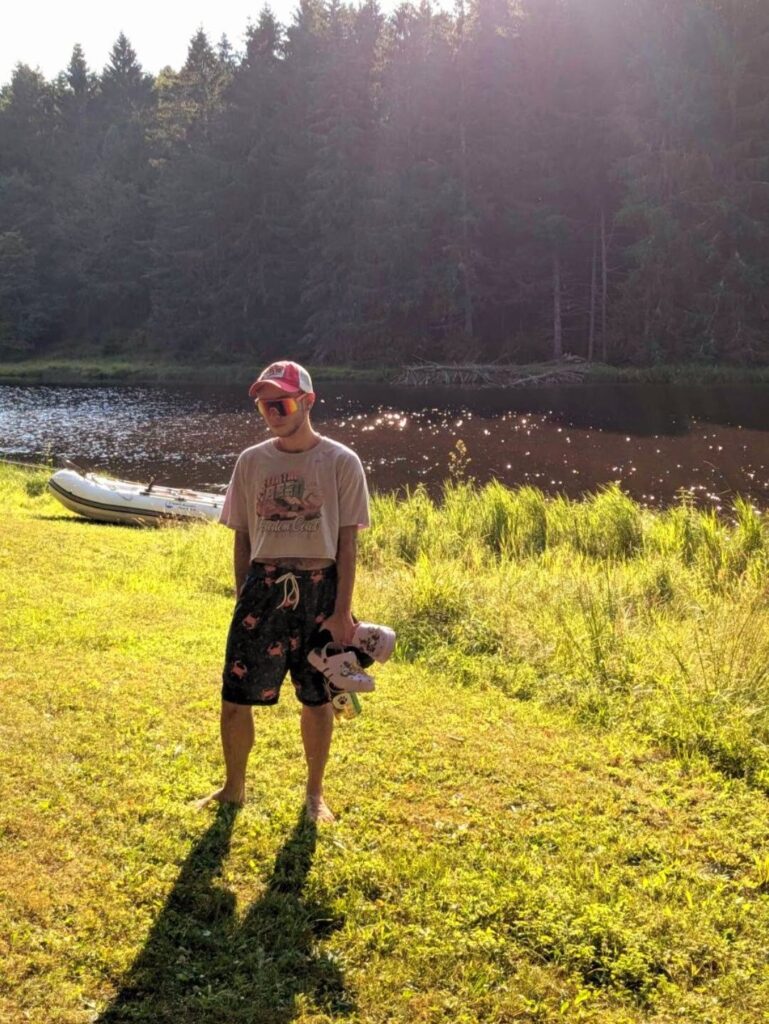
It’s sunset by the time we make our way to the lake, where I scrap my Hebrew recitation and explain in English what Bamidbar means to me. It feels natural. I glance at Sydney, who gave me the Star of David necklace. I crack a joke about bris for Quinton, who supported my journey into faith even as his path carried him away from organized religion. There’s a Q&A sesh for other guests to ask questions about Moses and the Torah so our goyishe peers don’t get left out. It’s a joyful occasion, all of us sunkissed and full of cake; we also acknowledge that I will never again be the person I was before the ceremony and before the big move takes place, the same way I’ll never again be a little girl.
“I really enjoy this section of Bamidbar for today’s occasion because it puts a name to the fear that comes with an era ending, even if the next one is likely to be better. I am scared…” I feel myself starting to cry in public for the first time since I started testosterone, and struggle to shake it off. “But I’m choosing to be hopeful, instead.” I pause. “Because, hey, at least I’m not wandering the desert right now.”
It’s remarkably unfunny, but we laugh anyway. Before anyone can see my tears, I run and leap into the lake. The mikveh waters close over my head and I feel myself start to heal.
